Step into my office
The sidewalk bookshelf that transformed my "office" experience, how space helps cultivate thinking, and some of my favorite nonfiction reads
A few weeks back, I came into some great wealth.
It came in the form of a text message from my husband, who was out on a walk in the neighborhood.
That great wealth was a white vertical bookshelf, exactly like ones I’d been searching online since I moved into this apartment, on the sidewalk, for the taking, for FREE. I love New York.
I set it up in an awkward, previously unusable little corner between my desk and Ham’s crate. Several days went by with it sitting empty: the corner, and therefore room, feeling unfinished. I recently got a new desk as well, and both as the impetus for and as a part of that decision-making process, had been thinking about the impact of space on productivity and creativity, especially as it relates to work.
My environment has always mattered a lot to me. Even when I didn’t have the words for it, I’ve always felt the energy of a space. That energy has an outsized impact on my experience, good or bad, and I know I’m not alone in that. When I moved to New York—a place I’ve felt drawn to for some time, a place with boundless energy and inspiration—four months ago, I physically felt lighter and more expansive. I am a product of my environment.
They say “clear space, clear mind”, but I believe it to be more along the lines of “inspired space, inspired mind”. For me, a wide open desk space, cool lighting, and—of course—lots of books nearby seem to lay the perfect foundation for good work. For others, tchotchkes and memories and supplies everywhere, what some would call clutter, do the very same. There’s no right or wrong way. Each and every person with a desk, whether they intended to or not, has curated a space where their thinking happens.
I really do believe the energy from something as small as your desk space can have an effect on what you create, how you think, who you become. So can books.
If you know me or have stepped into my home for at least the past five years or have experienced me as a square on Zoom, you know I arrange my books by color. It’s been an organizing principle within my space for as long as I’ve owned enough books to gather on a shelf.
But in an effort to create a space that’s curated for my best thinking, creating, working—complete with my new desk and new bookshelf—I went around my apartment and gathered up all the books on business, self-help, creativity, psychology, and welcomed them into my office (in color order obviously—I can’t completely abandon myself).
I would consider myself relatively selective when it comes to nonfiction genres like this. I’ve read many a nonfiction book that might grip me with the summary, but don’t keep me engaged enough to read an entire book’s length of the topic. Or their lessons might even seem pertinent at the time, but they don’t end up becoming instructions I return to.
The following books were not only intriguing enough for me to buy, but compelling enough (if I’ve read) or promising enough (if I haven’t) to make the move to New York with me.
Let’s take a tour of my gorgeous new office bookshelf, shall we?
From the top! How One Should Read a Book by Virginia Woolf. This is a speech that not only informed the way I interact with books, but crystallized exactly what I’m trying to do with curled up with the line “the opinion of people reading for the love of reading, slowly and unprofessionally, and judging with great sympathy and yet with great severity”. The entire essay is a response to the business of literary criticism: in her opinion, criticism had shifted from added value to the reader’s experience to a gatekeeper or the book industry. Her perspective on what books are, should be, and the mindset with which we should be reading them keeps me grounded.
Quiet by Susan Cain, to me, is an example of the power that comes when you’re given words to match your experience. I’m an introvert through and through, always have been, always will be. I remember reading this book at some point in high school and feeling so validated. While it took many years to figure out how to wield my introversion as the superpower that it is, the context it provided was invaluable to my young self.
I read On Writing by Steven King in 2015, and I know this because I found a plane ticket to San Francisco in December of 2015 inside. I flipped back through it while writing this and my eyes immediately went to this quote. Steven’s out here considering office placement too!
It starts with this: put your desk in the corner, and every time you sit down there to write, remind yourself why it isn’t in the middle of the room. Life isn’t a support-system for art. It’s the other way around.
Four Thousand Weeks is the best articulation of time I’ve ever come across—”we don’t get time or have time, we are time”. 🤯 This has been critical when I inevitably get caught in the swirl of feeling like I’m not doing enough, accomplishing enough, checking enough off the list.
But really, the “next and most necessary thing” is all any of us can ever aspire to do in any moment. And we must do it despite not having any objective way to be sure what the right course of action even is.
Fortunately, precisely because that’s all you can do, it’s also all that you ever have to do. If you can face the truth about time in this way—if you can step more fully into the condition of being a limited human—you will reach the greatest heights of productivity, accomplishment, service, and fulfillment that were ever in the cards for you to begin with. And the life you will see incrementally taking shape, in the rearview mirror, will be one that meets the only definitive measure of what it means to have used your weeks well: not how many people you helped, or how much you got some; but that working within the limits of your moment in history, and your finite time and talents, you actually got around to doing—and made life more luminous for the rest of us by doing—whatever magnificent task or weird little thing it was that you came here for.
When I first read The Gifts of Imperfection, I was convinced Brené Brown wrote it just for me. Here, I want to make the case for highlighting or underlining your books, especially nonfiction ones. We can’t possibly remember it all. Highlighting reinforces what matters to you; it keeps these resonant little morsels from getting lost in the sea of words. You’re not defacing your property, you’re making that book more personal and relevant whenever, if ever, you return to it.
The Way of Integrity is one that I was very glad to have highlighted my way through. I didn’t recall a ton from this one, but flipping through, was pleasantly surprised by nuggets like these:
No external guide you’ll meet will ever be as accurate as the teacher in your soul, and none can ever be as constant.
“I am meant to live in peace” rings the chime of truth more loudly and reliably than anything else.
Everything that truly makes us happy is limitless and multiplicative, not scarce and divisive. As we realize this, our fear of scarcity—the basis of greed—lessens. Recognizing that living our truth makes things better for everyone can give us the courage to make big decisions to move us toward integrity.
Atlas of the Heart is a glossary for emotions. Emotional intelligence is just like any other form of intelligence—we must understand the parts to make sense of the whole: the 87 fundamental emotions that make up the experience of living and connecting with others. Side note—I wonder what Brené Brown is working on now… I bet she’s cooking up something good.
There are several on this shelf that I haven’t read yet, and I’m excited to get to all of them in time.
Belonging by bell hooks is one of those. I’ve written about my love for bell hooks’ teaching before, and I have no doubt this one will have just as much mind-dazzling, behavior-altering advice. The subtitle for this book is “A Culture of Place”. She takes this idea of space impacting life, and amplifies it to kaleidoscopically explore what “home” means and from there, what it means to belong.
I find it fruitlessly fulfilling to read entire books about endearingly narrow topics. Author of Quiet, Susan Cain, wrote a book about the “bittersweet” feeling we’ve all experienced in the ends and beginnings. I’ve read Katherine May’s book about enchantment, which was lovely. I also have a book on the shelf about wonder. There’s so much to learn from rabbit holes like these.
I’m a brand strategist by day, and one of the skills required of the job is the ability to deliver a lot information about a brand, business, challenge in a small package called the creative brief. A woman named Bonnie Wan who runs the brand strategy department at an advertising agency right down the street from where I started my career took this concept of the creative brief and used it on herself. She made herself the client and used the process she’s used countless times in work on her life, identifying what matters most to her and how she can live a life that’s more in line with her truest self. She wrote a book outlining and walking the reader through this process called Life Brief. Can’t wait to brief myself on myself.
I’m also really looking forward to cracking into When Women Lead to confirm what I already know: everything is better with women in charge :)
This is just a smattering of my office bookshelf in its current iteration—the bookshelf, and my workspace, will grow and evolve just as I do, and how exciting is that?
What’s on your office bookshelf, literally or figuratively? Have you read any books that inspire you when it comes to work—professional or otherwise? Books that have shaped the way you think? Tell me about them :)
See you in a week for a March curledup roundup!
Love, Shelby
ICYMI:


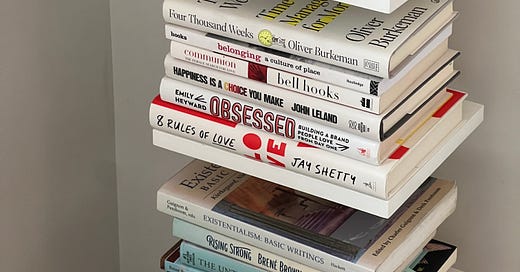


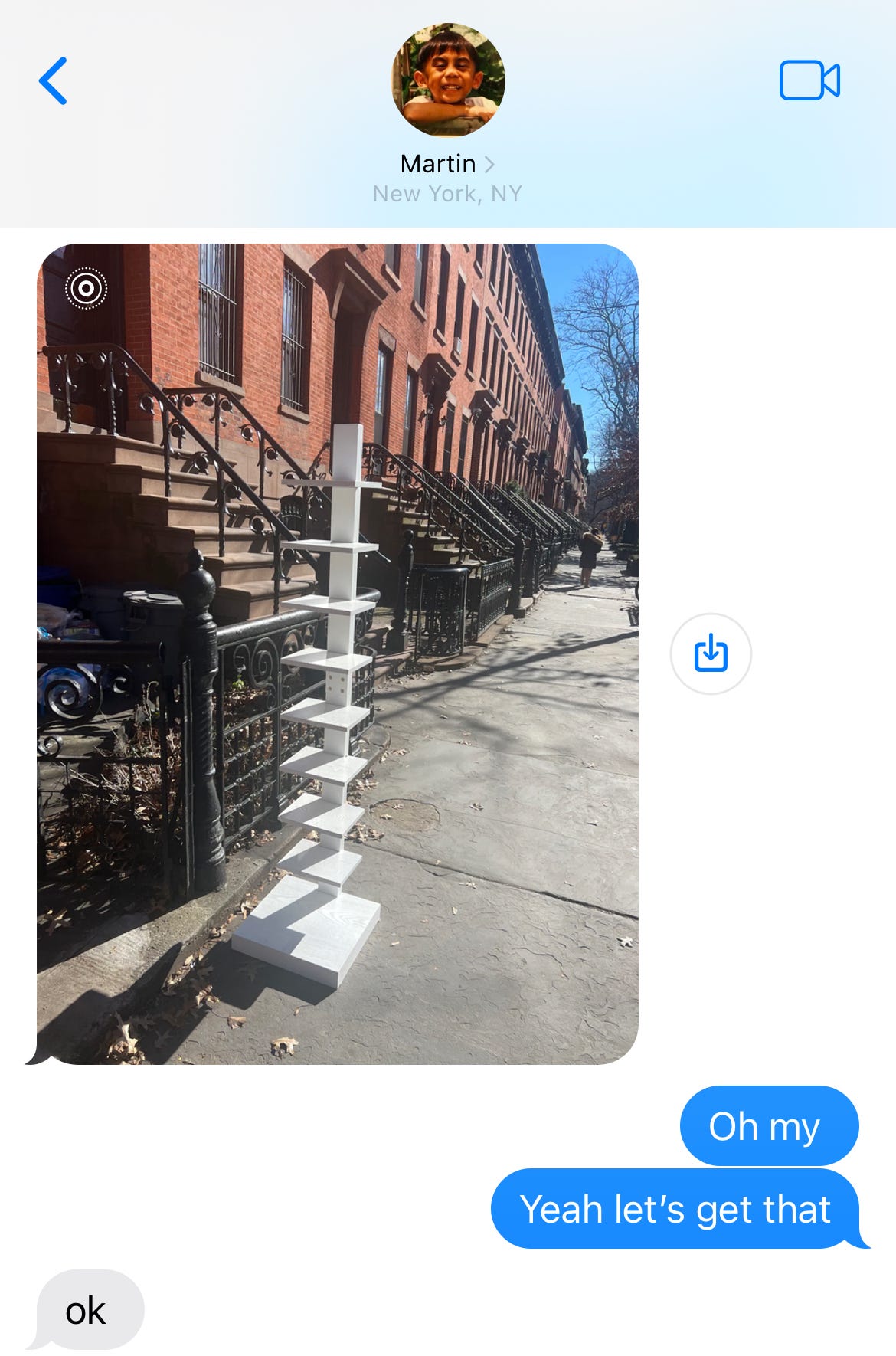
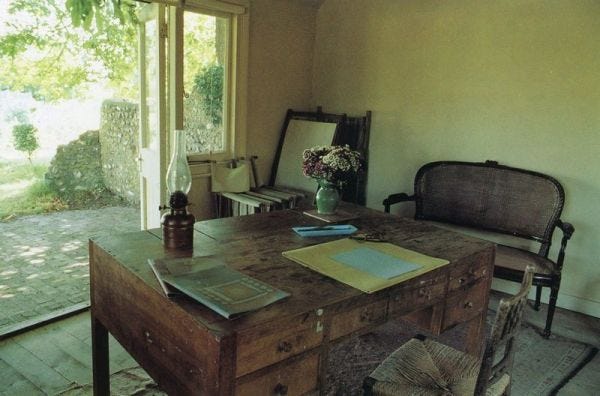
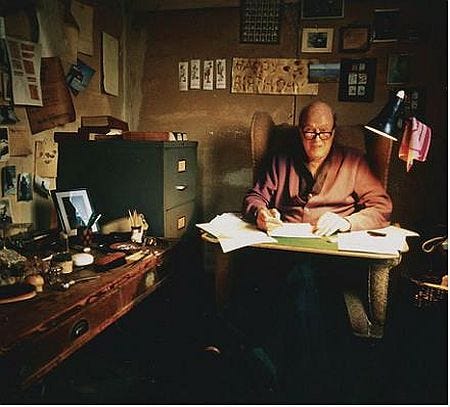
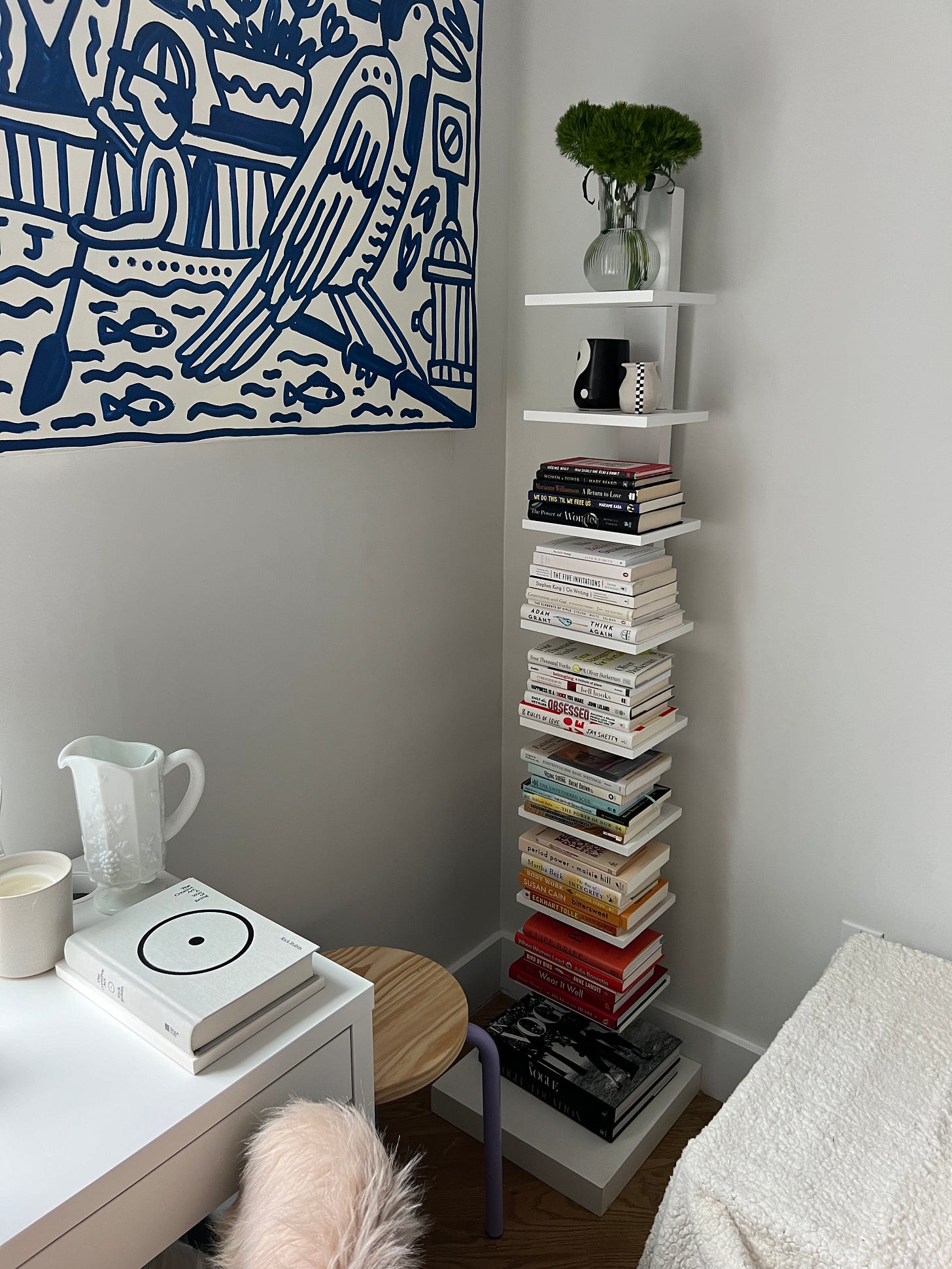


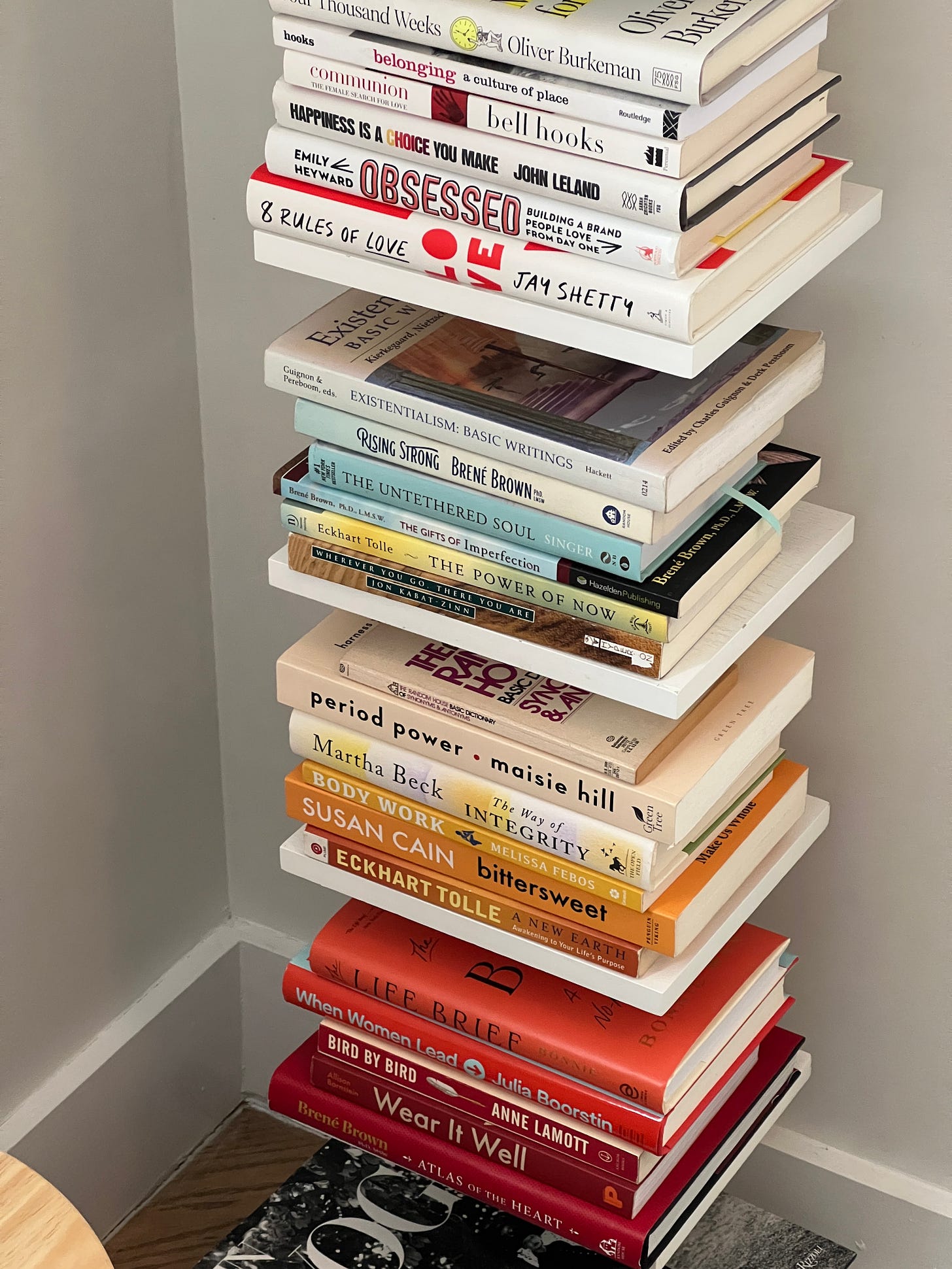
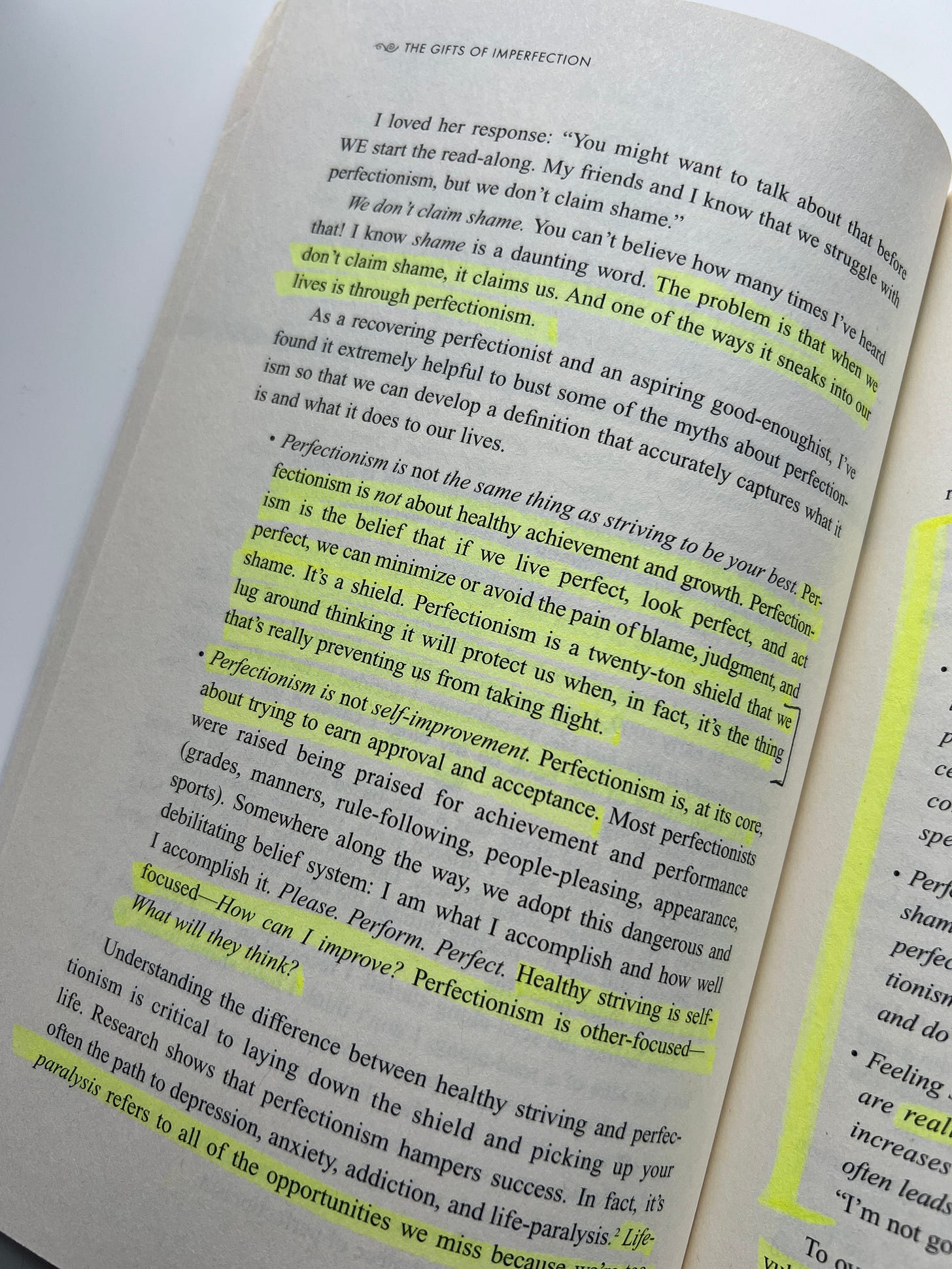

OH good more books to add to my list. Love books like this. And my desk is large secretary FULL of pictures, small items from my childhood, my parents, my son, my husband and friends. I love gazing up at it all when my mind needs a time to wonder.